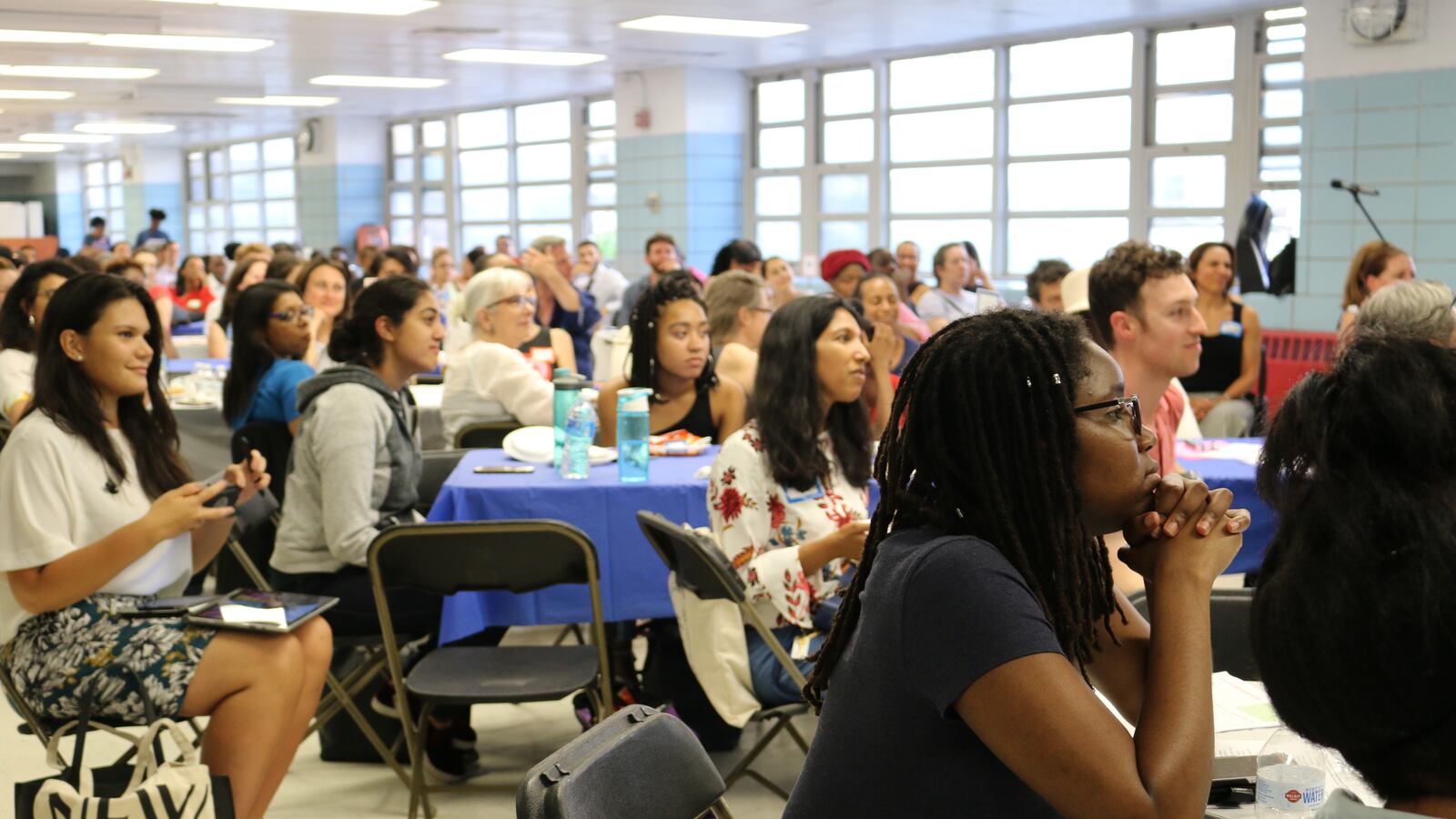After integration advocates found themselves underwhelmed by official plans to spur more diversity in New York City schools in summer 2017, city leaders promised more work would be done.
Tasked with that work: a School Diversity Advisory Group, appointed by Mayor Bill de Blasio, that many hoped would push the city to act more boldly and systemically to integrate in one of the country’s most segregated school systems.
More than a year of meetings and months of delays later, the advisory group on Tuesday released its recommendations for how to do that, calling for action that is “more ambitious” and “aggressive” but also “realistic.”
“We need schools that meet the learning styles and needs of all our students and to do that, our children must be learning together and from each other,” the report notes.
Among the recommendations, the group of students, parents, academics, and advocates calls for new, more tailored integration targets for elementary and middle schools based on district- and borough-level demographics, before aiming to mirror citywide enrollment.
In districts with an overwhelming number of disadvantaged students, the group says the education department should focus on measures to ensure schools are serving similar shares of the most needy children, such as homeless students.
But the report zeros in on nine districts where group members say student demographics are ideal for integration, saying those districts should be required to devise diversity plans. Those districts are 1, 2, 3, 13, 15, 22, 27, 28, 31. Some of those places — districts 1, 3, and 15 — have already changed admissions systems to encourage integration.
Other recommendations include: the creation of a task force to consider ways to make PTA fundraising more equitable, using diversity measures in school quality reports, and robust ethnic studies courses for students.
The report is only a first step. Some of the most explosive issues — such as what to do about gifted and talented programs and selective admissions processes called screening — are expected to be addressed later. The report also steers clear of the mayor’s proposal to overhaul admissions at specialized high schools in a bid to better integrate them, an effort that has sparked intense backlash and prompted a lawsuit.
Many of the recommendations don’t come as a surprise, as they echo the calls of a growing community of integration activists — many of whom are on the committee.
The report traces a long history of segregation in New York City schools and draws on dozens of research studies to make the case that more diverse schools benefit all students.
Its view of integration is expansive and based on a definition created by student advocates who have called for looking beyond enrollment policies that simply move children around. Instead, they argue that integration efforts should also create more equity within schools by focusing, for example, on the resources available to them and discipline policies.
“We believe it is necessary to tackle the issue of segregation in New York City public schools from all angles of a student’s experience,” said Julisa Perez, a member of IntegrateNYC, a student advocacy group. “Having this report address all of these issues is a big step.”
The group’s definition of diversity is also broad, including race and economic status but also students with disabilities, those who are learning English as a new language, and cultural and religious differences.
Whether the report will lead to real change remains to be seen. The recommendations are not binding, and with just three years left in de Blasio’s term, time to act is dwindling for the current administration. Other controversial school reform efforts have gotten stuck in committees under the mayor’s watch, including recommendations for updating a 1998 agreement that governs how police officers do their jobs in city schools.
While de Blasio has avoided aggressive action to undo segregation, schools Chancellor Richard Carranza has been far more blunt about the need to take on the issue. At Tuesday’s press conference, the chancellor said he would be weighing in on the suggestions in the coming “weeks,” but did not offer a specific timeline.
“I look forward to working with Mayor de Blasio in making the recommendations in the report truly the topic of conversation as we move forward,” Carranza said. “I’ll have a lot more to say about the specific recommendations and how we move forward together.”

